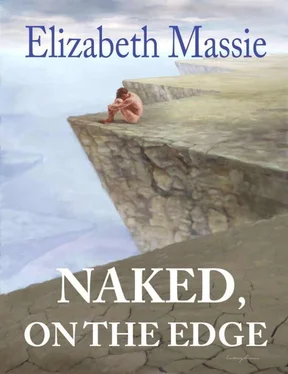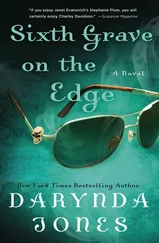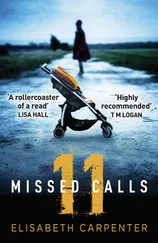“And your mother,” said Mrs. Anderson. She opened her brief case and took out Elliott’s lesson plan book. “How is she today?”
“Same,” said Elliott.
“Mmm-hmmmm.” Mrs. Anderson looked up at Elliott then. Her happy-to-see-you smile was getting heavy, folding back down into an expression of perfunctory purpose. “How are the exercises going?”
“Exercises?”
“We talked yesterday about your weight gain, Elliott. You’ve put on quite a bit of
weight since you stopped attending school. Without a physical education program daily, you’re doing your body a disservice.”
“I didn’t do any exercises yet. I tried one but my stomach hurt so much I stopped.”
Mrs. Anderson sighed. Elliott had heard that sigh many times, from many of the adults at his old elementary school and at the middle school. On the days when Elliott had been put on the bus by his father, he would have severe stomachaches during homeroom. He would go to the guidance office but the counselors would try to talk him into staying. They would sigh that sigh and say, “Elliott, if you just stick it out through lunchtime you’ll feel better.”
Some of the days he would make it through art class, but then insist on calling his father to pick him up. Most days, however, he would wet his pants or have a bowel movement and the counselors had no choice but to send him home.
He was a sick boy. He was sick like his mother, and he needed to be home with her. If she died when he was at school, he would never forgive himself.
Elliott looked at Mrs. Anderson. Mrs. Anderson looked at Elliott. She said, “Are your parents treating you all right, Elliott? How are you getting along with them?”
“Fine.”
“Anything you’d like to talk about?”
“No. We’re getting along okay.”
She rolled this around on her face a little then let it go. “How about your math, did you finish the page of fractions?”
“I finished some of it.”
“Why not all of it, Elliott?”
“I didn’t feel good.”
“And your civics?”
“I didn’t have civics.”
“Yes, you had a chapter to review. We were having a quiz today.”
Elliott said, “Oh, yeah, I forgot.”
“Get out your books,” said Mrs. Anderson.
They spent the next two hours working through civics, pre-algebra, and English. Elliott wondered if a homebound student could have entered the phone book contest. He wished Mrs. Pugh could come at least one hour a week out of his required twenty and let him paint for her.
Mrs. Anderson left at four, and Elliott watched cartoons until six. He made supper of canned chili and chips and talked his mother into coming into the living room and eating on a T.V. tray next to him. She spilled half of her chili then went back to bed. Elliott rubbed most of the chili up with one of his father’s dirty work shirts from the laundry basket.
He lay on the sofa and looked at the phone book. He could have painted one of his horse pictures. Mrs. Pugh had loved his horse pictures. She said they made her feel free just to look at them. He could have made a picture the judges would have loved. He could have had his work on all the phone books in the county.
Elliott fell asleep on the sofa. His father woke him when he got home from work at ten, and sent the boy to bed.
“Ellie, I can’t get up. Bring me the bedpan.” Elliott was in the bathroom on the toilet, looking at the phone book. His teeth clamped together. He hated doing the bedpan. He pretended not to hear.
“Ellie, can you hear me? I need the pan ’fore I make a mess in here!”
Elliott squeezed his eyes shut. Behind his lids, he saw horses running, watercolor horses free and running across a yellow beach and into the water where a happy white sailboat drifted to places far away. When he opened his eyes, he saw his pants down around his ankles, and the penis his mother said the boys would make fun of when he had to dress out in gym class when he went to the middle school.
“The doctor made a mistake when they circumcised you, Elliott. You got a little penis with a nick in it and when the boys see you they’ll laugh.”
When his father had sent him to school anyway, Elliott would wet his pants before gym so he could go home to his mother. For a couple of days the assistant principal walked him to gym and made him dress out. Elliott had hid behind a locker door and cried while he pulled on the royal blue gym shorts. In the gym, he refused to participate, and sat against the wall with the back of his head pressed into the cinder block. After a half-year, Elliott was removed from gym and got to sit in the library and read a book during second period.
“Ellie!”
Elliott went to his mother’s room. She was already wrestling with the hem of her nightgown, tugging it up. “Hurry, honey!”
Elliott took the pan from the floor and slid it under his mother’s rear end, then turned away. He could hear the water run into the aluminum, could hear his mother’s airy whistle of relief around the cigarette in her mouth.
“Done, honey.”
Elliott took the pan into the bathroom and dumped the urine into the toilet. He glanced at the phone book on the -bath mat. Mosby’s painting lay face up, taunting. Elliott rinsed the pan and took it back to his mother.
She was already drifting to sleep.
“You want some breakfast?” he asked.
“My stomach hurts too much to eat. I don’t got long, Ellie, I know that. This morning I’m in more pain then I been in for a long time. What you gonna do when I’m dead?”
Elliott did not know what to say. And so he said, “Do you know where my crayons are?” “Your what?”
“Crayons.”
“Crayons? Those things you had when you was little?”
“Yeah.”
“Sure we throwed them away, Ellie. You ain’t got time for crayons. I need you. You and me, we need each other, we’s so sick.”
“I want to make a picture.”
“Make yourself useful. Vacuum the living room so Mrs. Anderson won’t turn us in for neglect.”
“I want to make a picture. I’m better than Mosby Paulson, so much better you wouldn’t believe it.
“Go.”
Elliott vacuumed the living room. The large cat turds he pushed under the lawn chair because the vacuum nozzle wouldn’t pick them up. He put the vacuum back into the living room closet and went into the kitchen. The windows were still closed, and through the glass he could see the wild and green weeds of his side yard.
Horses eat wild, green weeds.
Beyond the weeds was the neighbor’s house, a blue trailer with a homemade deck on the front. Elliott knew that the Campbells lived there. They were old people, and they used to have two children, but the children were taken away to live in foster homes because the Campbells beat them up a lot. For the first time in the four years since the Campbell children were gone, Elliott wondered where they were.
Maybe Pueblo, Colorado. Maybe Washington, D.C.
Maybe across the ocean on a white sailboat.
In a junk drawer, Elliott found several broken pencils and a knife. He sharpened the pencils with the knife and then drew a horse on a paper bag from under the sink. It wasn’t as good a horse as one would have been had he had his crayons, but it was a fast horse. It ran with its mane and tail in the wind and its nostrils up to the air.
He hid the picture in his bedroom. Then he watched T.V. until Mrs. Anderson came at two with her concrete smile and bright white coat and her chastisements and her nose that couldn’t stop twitching at the smell of cat pee.
Elliott’s father woke him from his sleep on the sofa.
On the console television, David Letterman was well into his monologue.
“You snoring, boy,” his father said.
Читать дальше












